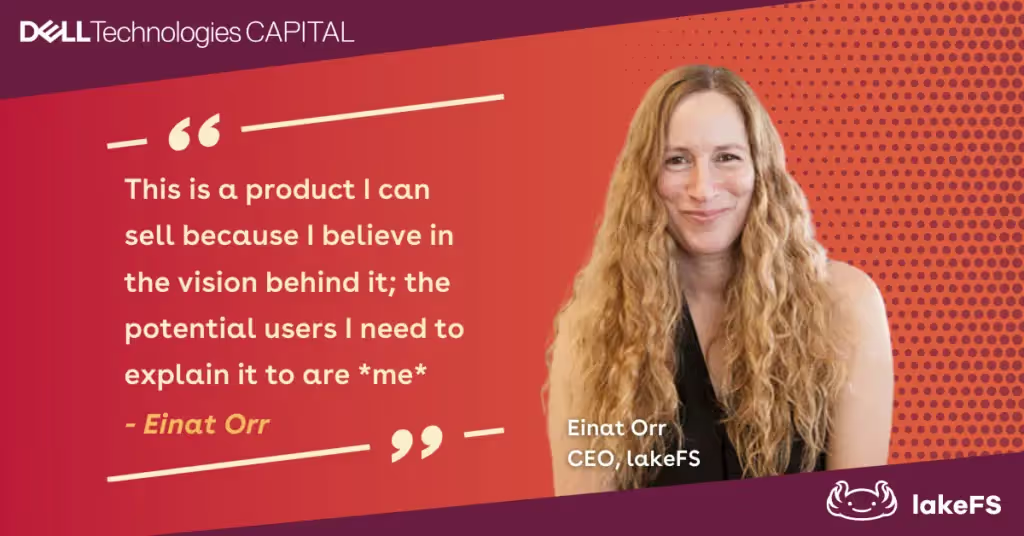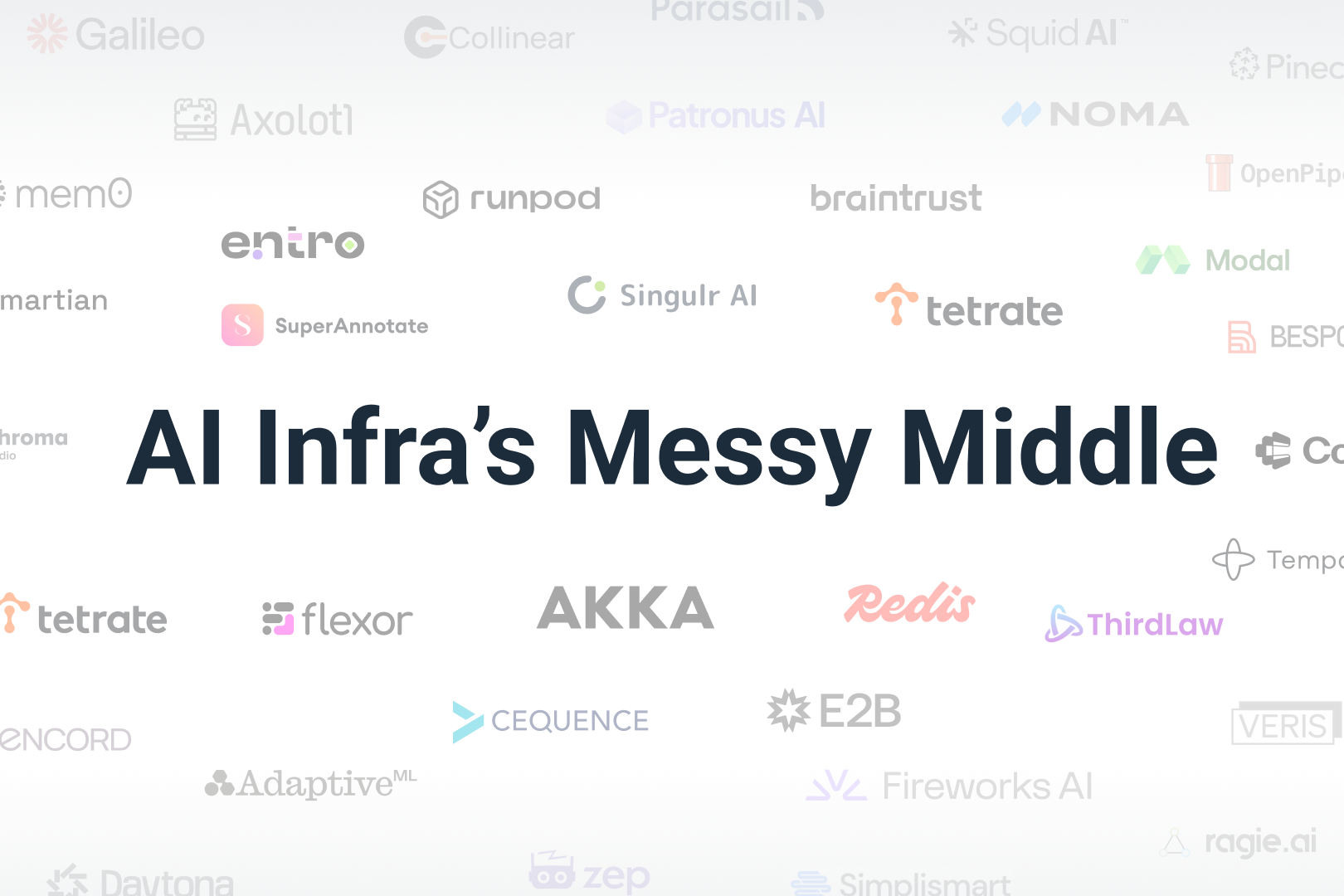The DTC Interview: Treeverse CEO Einat Orr

Beneath the water, Einat Orr raises one arm over her head, plunging it forward and then pulling it back to propel herself forward as she swims—it is the only time she’s not trying to take a competitive lead.
“It’s centering and healing because it is not competitive. I’m out there competing and focused on winning, in a sense, every day as a founder and CEO,” says Orr of her daily swim routine. Winning, so to speak, is a major focus for Orr as a first-time CEO, along with many new responsibilities. The company she co-founded, Treeverse, builds the popular open-source project lakeFS that provides scalable and format-agnostic data version control for data lakes. A tool that, alongside the adoption growth of AI/ML/LLMs, is becoming indispensable for data practitioners who need to ensure the quality of their data while collaborating in building AI/ML models or bringing analytics insights.
We connected with Orr to hear about the company’s growth and her experience as a first-time CEO.
WHY THIS, WHY NOW?
Q: In your own words, how would you explain what lakeFS enables, to say, my mom?
Einat Orr (EO): I’m assuming she relies on products that rely on data. For example, all the recommendations she gets from Netflix on what to watch, or the recommendations she gets from Google on how to complete her sentences—those run machine learning models that rely on data. lakeFS helps the people creating those products for her to better manage their data. And if your mom is more technical, she can think of lakeFS as bringing engineering best practices to data engineering and to machine learning and research. The way software engineers rely on gits as their version control for code, lakeFS provides version control for the data.
Q: So, does lakeFS become more and more important as LLMs and generative AI take off?
EO: Absolutely. We become more important because the generative AI models require fine-tuning. And what’s key to getting that fine-tuning right is the quality of the data that goes in. You have to bring the right data in and manage it properly while you’re experimenting, training, and fine tuning your LLMs. This is what lakeFS does so yes, the increase in popularity of LLMs and generative AI only make lakeFS more important in the AI/ML space.
ON ENTREPRENEURSHIP
Q: You earned a PhD in mathematics and then moved into a series of R&D and engineering leadership roles. What inspired you to found your own company?
EO: Oz Katz, my co-founder, and I worked together at SimilarWeb. He came up with the idea of creating a data version control system, and after he explained it to me, I just couldn’t stop thinking about it. For the first time—because I never saw myself as an entrepreneur—I realized that this is a product that I can not only deliver but is also a product I can sell because I really believe in the vision behind it. And the people I need to explain it to – the community and our potential users – are actually *me*.
Everything came together around this idea. There was no gap. There was no overthinking. I just fell in love with the solution.
Q: Typically, people launch an OSS project and then build a business around it. But, you decided to simultaneously start a company and an open source project. Why did you take this approach with Treeverse and lakeFS?
EO: Both Oz and myself spent years in the big data domain and we knew that penetration of a novel concept will only happen bottom up, and that data practitioners will respond best to an open source community when adopting the concepts we introduce. Open source is a basic expectation of data practitioners who rely on Hadoop/Spark/Kafka/Airflow, etc. It was the only strategy that made sense.
Q: Speaking of community, how do you think about managing and growing the lakeFS user community?
EO: As a company, we are focused on our users (the data practitioners) and the pain points they have. Our community culture reflects the company culture. It’s very focused and straightforward. We don’t have discussions about our pets :-).
In Slack, people have dozens of communities on the left-hand side that they hardly ever enter. We try to keep our Slack narrowly focused so it’s useful. It is all about lakeFS, how we improve it as a product, and how community members can assist each other with technical challenges and use cases. I think that makes our community more valuable and sustainable. People know we’re there and they come in to collaborate, offer functionality and get questions answered about lakeFS.
We aren’t pushing people to contribute. We’re not telling them, “OK, if you want a feature go develop it yourself.” We’re listening and if there is something a lot of people want, we’ll build it.
ON LEADERSHIP
Q: In a previous interview, you shared that neither you nor Oz wanted to be the CEO. How did you decide on who should carry the title?
EO: We fought over it. [laughs] We both wanted to be CTO, not CEO. He won.
Q: What was intimidating about taking the CEO role?
EO: Intimidated? I’m not that kind of person. I recognized that Oz was a strong technical leader, the best technologist, so I agreed to be CEO. But from the moment I decided I was going to be CEO, fear wasn’t part of the game. Of course, failure is an option but that’s never deterred me from doing anything.
Q: So what parts of being a CEO are you enjoying the most?
EO: Managing a growing team and focusing it on a vision is something I feel experienced in. Also being accountable for the success of the company is something I am familiar with from past roles. But in this role, I find myself a lot out of my comfort zone and it is amazing. I’ve been doing R&D all my life, and I came to a point where I felt “been there, done that.” And here, as CEO, I’m always being challenged with new things, such as marketing, developer experience, and sales, with understanding the users/customers, with understanding exactly who the buyer is and with all kinds of questions I’ve never had to answer. I learn a lot from the strong team we have built.
Q: As a follow-up, what lessons have you learned as you’ve expanded the types of roles and disciplines you’re leading?
EO: Managing is managing. Of course, the approach to people and how you foster them and help them succeed is unrelated to the content of what you’re managing. It is important to understand how to focus people, how to give them on the one hand a vision, and on the other hand, attainable goals, and to work with them to get to those goals.
The agile methodology that is widely used in product delivery is useful in every domain. Planning for two weeks, being able to retrospect and improve the process, continuous improvement, all those things are relevant to every domain, and we practice them within the company everywhere.
When it comes to the professional domains, I consult a lot of people. I have great consultants for marketing, sales and business development, and I lucked out with a perfect hire of a sales leader, so I have support in the domains I don’t professionally come from.
OFF THE CLOCK
Q: What do you do in your downtime?
EO: I swim every day, and I’m a different person if I don’t swim. If you catch me on a day I didn’t swim, it might be dangerous. Really, there’s something meditative in swimming because it’s repetitive and it helps me focus. It helps me take out the energies that I shouldn’t be having, I’m just pouring them out of my body and it’s a lifesaver for me. It’s something that I love doing. I can swim for hours.
Q: Is it competitive at all for you?
EO: It’s centering because if it would become competitive, then it would lose its value. I’m out there competing in a sense every day on a lot of things. And I want to win constantly. And this is the place where I shouldn’t be trying to win. I just need to meditate in the water.



.png)